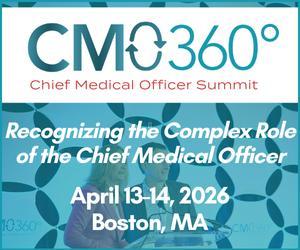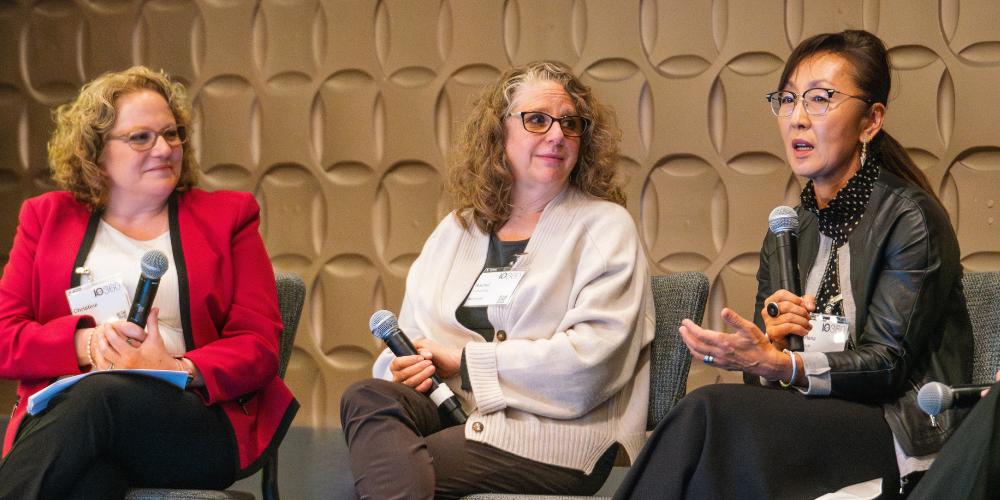When Immunotherapy Offers the Chance for Life and Family After Cancer Diagnosis
Participating in an immunotherapy trial after a colorectal cancer diagnosis saved Kelly Spill Bonito’s life and avoided life-altering side effects. Kelly discusses her diagnosis journey, her experience on the trial, and where she feels patients need more support.

Kelly Spill Bonito was 28 years old with a new baby when she was diagnosed with Stage III colorectal cancer.
She had begun seeing symptoms – constipation, blood in stool – at eight months pregnant, but was assured by her doctors that it was normal for how far along she was. Her symptoms didn’t resolve after giving birth, and a doctor at a postpartum checkpoint said it was likely internal hemorrhoids. That was confirmed by a second opinion, and nothing came up in her bloodwork.
At the time, Kelly was in the middle of moving coast-to-coast, to be closer to family in New Jersey. She put her health aside to focus on the new baby, the move and finding a job. “But every day, I was waking up and I just wasn’t feeling right,” she said. She lost her appetite, rapidly dropped weight, and went back to the emergency room after an alarming amount of blood in her stool. Again, her symptoms were dismissed as postpartum internal hemorrhoids.
A nurse at a family clinic after another fruitless appointment told her, “If you don’t find your answers here, keep searching. You know your body best.” Kelly did, and was eventually connected to a doctor who gave her a referral for a colonoscopy. That colonoscopy confirmed a tumor, and eventually, her cancer diagnosis.
Kelly took part in a clinical trial at Memorial Sloan Kettering for people with rectal cancer whose tumors have a rare genetic mutation. Every person in the trial saw their tumor disappear.
The following is an edited/condensed Q&A.
Why did you go for the immunotherapy trial instead of the traditional options?
When we went to Memorial Sloan Kettering and it was confirmed I had Stage III colorectal cancer, my doctor told me that the treatment plan would be chemotherapy, radiation and surgery. That meant that I would most likely no longer be able to carry a child again, and that I would likely have a colostomy bag for the rest of my life. Hearing that at 28 years old was really hard, and was a lot scarier than being on a clinical trial.
I had enough time to freeze eggs/embryos before treatment, and I went to the appointment for my first round of chemotherapy, a research nurse came into my room and said, “We may have another option for you. Would you like to hear about it?”
She showed us documentation about the drug, the treatment plan, and the side effects, to let us make an educated decision from there. I would be only the fourth person on this drug in the entire country at the time, but after hearing the side effects of the original treatment, and the fact that I wouldn’t be able to carry a child, the chemotherapy seemed a lot scarier than trying out an immunotherapy in a clinical trial.
"The chemotherapy seemed a lot scarier than trying out an immunotherapy in a clinical trial."
What was the actual trial like?
I did one 30-minute treatment every three weeks. By my second treatment, I started to feel so much better, which I know now is because my tumor was shrinking and everything that it was blocking started to come out. By my fourth treatment, I was told my tumor was halfway gone. During a protocol sigmoidoscopy, my doctor told me that everything was looking good, and by my ninth visit, it was completely gone.
What were the biggest challenges you faced in getting your diagnosis?
I wish I could’ve asked more of the doctors. “Can you give me a CT scan?” or “I’ve heard this answer 10 times, but I’m still feeling this way. Can you do this?” There’s only so much you can say to a doctor if they’re not always listening. But I would say to anyone experiencing that, if your doctor isn’t listening, find another one.
"There’s only so much you can say to a doctor if they’re not always listening. But I would say to anyone experiencing that, if your doctor isn’t listening, find another one."
What support would’ve been useful to you?
Everything is so overwhelming, physically and mentally. I was in a lot of pain. I’ve talked to other people with similar cancers and they didn’t have pain because their tumors were in a different spot. For me, I was so worried about the physical pain that the mental strain of what I was going through didn’t catch up to me. That’s why talking to other people, and connecting with those who have been through it before, is so important.
I am lucky that someone actually ended up reaching out to me, telling me that they knew someone going through the same cancer. I connected with her and she helped me through so much of it. If there was a way of connecting people or assigning someone for advice, it would make people feel much more comfortable. I'm actually helping a patient out right now. She came to me and asked, “Is it normal to not be excited about hearing good news?” And I told her that it was totally normal for someone going through this. It’s beneficial to hear from someone else going through it, and helping others get through it as well.
What additional things would’ve made the process better or easier?
I'm very lucky to have had my support system, but financially it's a huge burden. Especially going into New York, it's so expensive going in and out: the parking, the tolls, the gas, etc. I was coming from New Jersey, but I knew people traveling from all over the country and the world, who had no place to stay when they got to New York.
If someone is traveling into a city, putting them up during a treatment would ease some of that financial burden. Childcare was another issue; if I didn’t have support for someone to watch my child, that would’ve been a huge issue.










